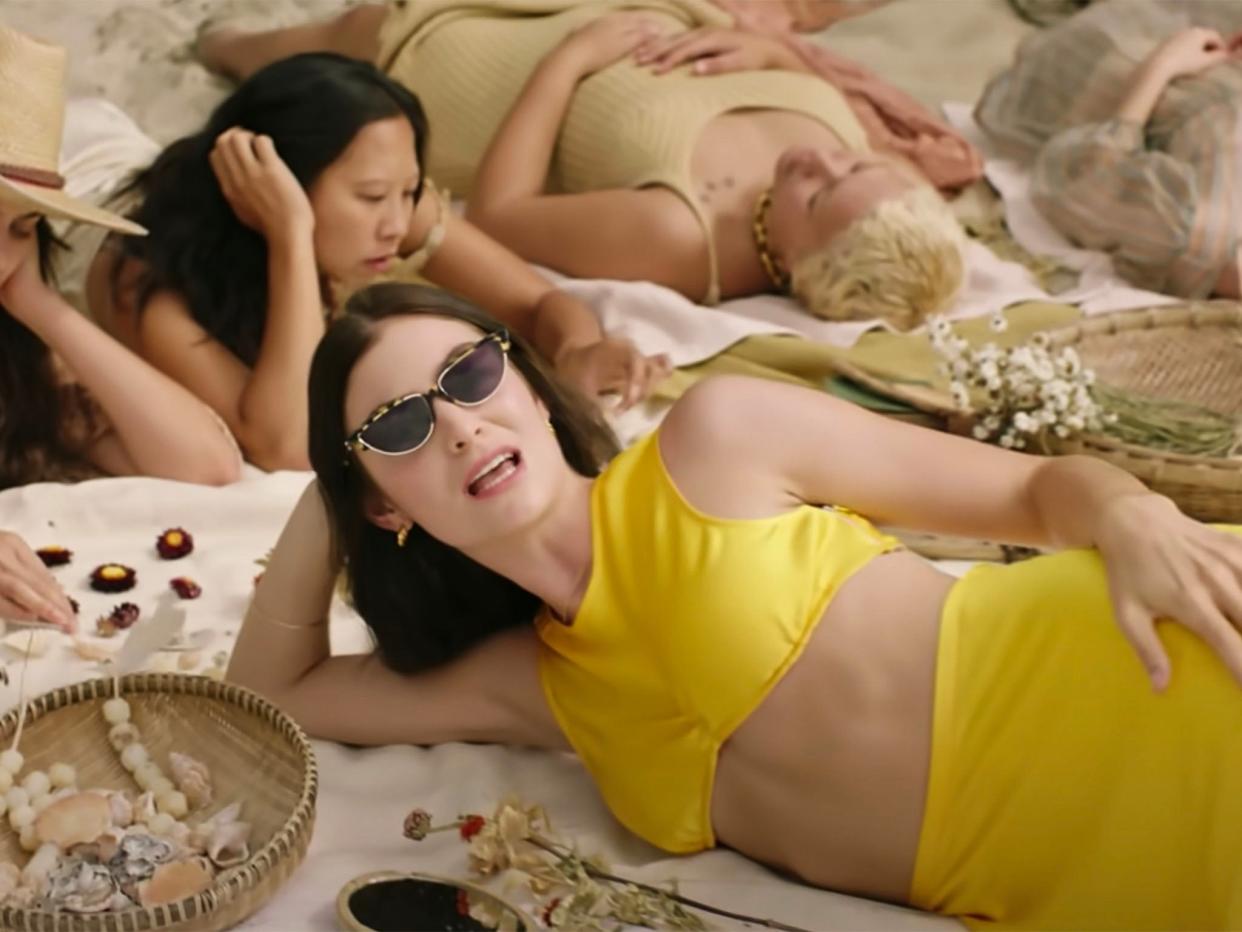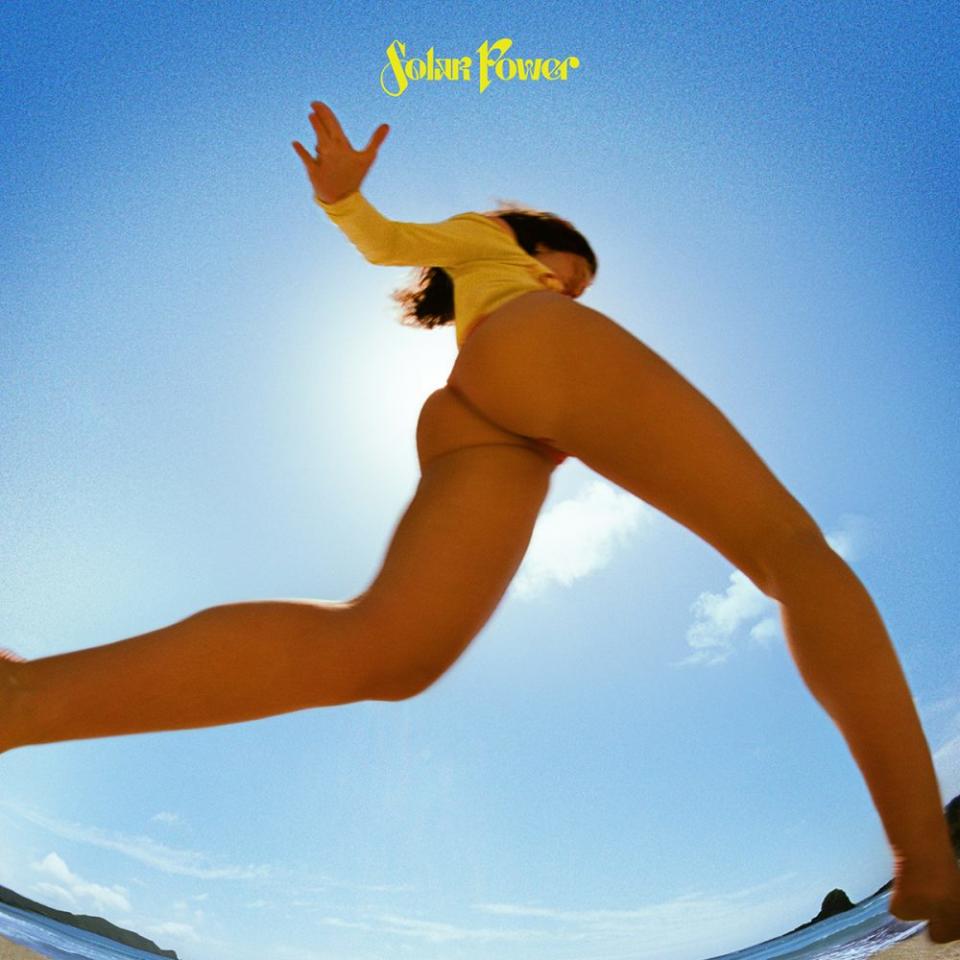Praise the Lorde: Why the musical grandee has returned at the perfect time

- Oops!Something went wrong.Please try again later.
In 2014, the New Zealand singer Lorde walked on stage at Brooklyn’s Barclays Center, hands tightly clasped and smiling shyly in a pink suit. That night, to honour Nirvana’s induction into the Rock & Roll Hall of Fame, she was performing “All Apologies” with the band’s remaining members. Also on stage were St Vincent, Joan Jett and Sonic Youth’s Kim Gordon. Yet in this moment, the spotlight was on Lorde, a 17-year-old who had sold a million copies of her debut album, Pure Heroine, in less than six months.
Lorde rose to the occasion – but not everyone was delighted by her presence. Iggy Azalea described the performance as “inappropriate” on the grounds of Lorde’s youth, while a critic at the New Zealand Herald claimed: “Kurt would have hated that.” But Dave Grohl and friends knew differently. Lorde’s appearance at Nirvana’s induction was a measure of her standing among alt-rock’s grandees, who knew talent when they saw it and welcomed her as one of their own.
Now, seven years later – and at the ripe old age of 24 – Lorde, aka Ella Yelich-O’Connor, is a musical grandee herself. The anticipation for her new single “Solar Power” – complete with butt-tastic cover art that bears strong echoes of Free’s self-titled second album (or perhaps Funkadelic’s Free Your Mind… And Your Ass Will Follow) – has been palpable. Released to coincide with the solar eclipse, the song is an intimate, gorgeously uplifting and supremely confident summer anthem that exhorts us to “forget all of the tears that you’ve cried, it’s over”, with echoes of George Michael and Screamadelica-era Primal Scream. In the video, we see Lorde on the beach, barefoot, frolicking amongst her friends, Midsommar-style, and sloughing off the tensions of the last year. Those looking to understand the fan worship will find it all there.
Still, Iggy and the odd disgruntled critic aside, the consistent love for Lorde is unusual in an industry in which an artist’s stock, egged on by social media, tends to surge then crash then surge again like a politician’s poll ratings. Perhaps it’s because her music is accessible while containing a marked dose of strangeness, and the fact that her songwriting – at once emotionally raw and witty – has a strong multi-generational appeal. Retaining outsider credentials while working within the bounds of pop music is no mean feat; Billie Eilish has pulled off the same trick in recent years, to even greater applause (Lorde is known to have inspired Eilish and her brother Finneas). As Laura Snapes wrote in The Guardian, “[Lorde has] always carried herself more like an auteur than a modern pop star.”
It’s significant that, though Lorde talks approvingly of her contemporaries, her main idols are her musical elders, among them Leonard Cohen, Paul Simon, Joni Mitchell and Fleetwood Mac (Stevie Nicks has, in turn, said Lorde would have been “the third girl in Fleetwood Mac”). Listen to “Writer in the Dark” and you might conclude that Kate Bush is up there among her heroes, too. Like her forebears, Lorde is a smart lyrical stylist. Single lines such as “She thinks you love the beach, you’re such a damn liar”, from the house-y anthem “Green Light”, manage to tell entire stories without condescending to spell them out.
When, in 2013, Lorde first appeared with the single “Royals” – a song so perfectly stripped back, it was basically all bones – her future looked frightening. The song shot to number one all over the world, and this teenager with an unusually old soul suddenly had the music industry at her feet. Such situations rarely end well. It’s hard to hold your own in a business that likes to mould women to its own ends; the list of young girls embarking on careers in their mid-teens, and being crushed by the experience, is depressingly long. And navigating critical acclaim, especially when it comes from actual deities – David Bowie said her music was like “listening to tomorrow” – brings its own pressures. Yet Lorde appears to have met these challenges with preternatural levels of zen.

Her precociousness echoed that of the young Taylor Swift, both with her early record deal (Lorde signed to Universal at 13 after a friend’s dad sent them a recording of her covering a Duffy song) and her ability to write exceptional songs from a young age. But where Swift’s determination to succeed was clear, Lorde appeared comparatively detached, her vibe suggesting success would more likely be greeted with a shrug than an air-punch.
Her leisurely timetable when it comes to making albums would also suggest a woman working at her own pace and basking in the luxury of time. Of course, it’s not like she’s been sitting around doing nothing – also on its way this year is a photobook, Going South, which documents Lorde’s experience of “hitching a ride to the end of the world” to see the effects of the climate crisis in Antarctica. But while other artists indulge the desire to keep up a steady flow of content, Lorde appears happy to retreat from view. “I just hibernate for a bit,” she told a New Zealand radio station this morning, “and then I pop back out with a brand new universe.”
Her approach, which also extends to ignoring her social media accounts, would suggest that keeping the world at arm’s length can do wonders for a career. Less is almost certainly more.
Read More
Lorde, Solar Power review: A sun-splashed and of-the-moment return
It’s oh so quiet: does 2000s acoustic indie deserve another chance?
Japanese Breakfast: If I had cancer like my mother’s, ‘I would just euthanise myself’

